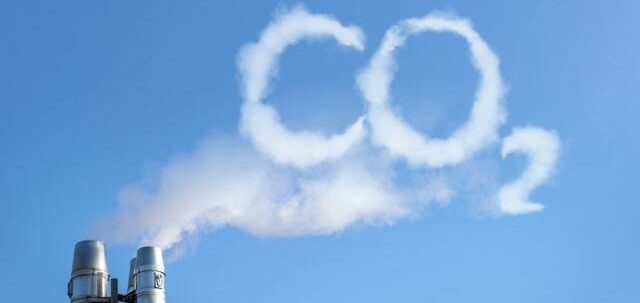“The risk of unbridled growth in emissions due to greater use of coal in a context of energy crisis has not materialized,” says the report, based on national public data.
ADVERTISING
“The rise of solar and wind energy, electric vehicles, energy efficiency and other factors have halted the increase in CO2”, explains the entity, created in 1974 by the Organization for Economic Co-operation and Development (OECD) to advise rich countries on energy issues. .
But the good news is more than relative, given that carbon dioxide (CO2) emissions from the use of fossil energy (which represent 75% of greenhouse gases), maintain “an unsustainable growth trajectory” and increase climate imbalances, warns the IEA.
In 2022, planetary CO2 emissions from fossil fuels increased by 0,9%, reaching a record 36,8 billion tons, the report indicates.
ADVERTISING
Global CO2 emissions came from the greater demand for fossil energy, mainly related to extreme weather episodes and the malfunctions of numerous nuclear reactors.
Emissions generated by coal combustion increased by 1,6%, because in Asia and Europe this fuel was often an alternative to rising gas prices.
Emissions caused by the use of oil grew by 2,5%, although they remained below pre-pandemic levels. Half of the increase is explained by the resumption of air traffic, says the AIE.
ADVERTISING
More emissions in Asia, less in the EU
By region, emissions from Asia (excluding China) increased by 4,2%, driven by economic growth. China, where Covid-19 restrictions continued until the end of last year, maintained the same level.
In the European Union (EU), CO2 emissions fell by 2,5%, thanks to the strong development of renewable energy in the face of the return of coal.
In the United States, they increased by 0,8%, with strong energy demand due to the extreme temperatures faced by the country.
ADVERTISING
“The impacts of the energy crisis did not cause the large increase in emissions that we feared, thanks to the notable growth in renewable energy, electric vehicles, heat pumps and energy efficiency technologies. Without this, the increase in CO2 emissions would have been almost three times greater”, said the director of the AIE, Fatih Birol.
“No entanto, as emissões de energia fósseis continuam aumentando e dificultam os esforços para atingir as metas climáticas mundiais”, acrescentou, antes de pedir às empresas desses setores que tomem medidas adequadas.
“International and national companies in the fossil energy sector must assume their responsibilities, in line with their public climate commitments. They must reorient their strategies towards a real reduction in their emissions”, he added.
ADVERTISING
(With AFP)





